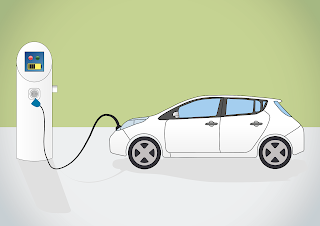Jamaica, a vibrant Caribbean nation known for its stunning beaches, rich culture, and warm hospitality, is also grappling with the challenges of urbanization and transportation. As the population grows and cities expand, the demand for efficient and sustainable transportation solutions becomes increasingly urgent.
To address this issue, Jamaica has the opportunity to embrace smart mobility and green infrastructure, revolutionizing the way people move within the country. By integrating technology, sustainable practices, and public engagement, Jamaica can build a transportation system that not only eases congestion but also fosters economic growth and reduces environmental impact.
The Current State of Transportation in Jamaica
Jamaica's current transportation system faces various challenges, including traffic congestion, inadequate public transit options, and heavy reliance on private vehicles. The infrastructure struggles to keep up with the growing demand, leading to longer travel times, increased emissions, and a negative impact on air quality.
In addition to urban transportation, rural areas face their own set of challenges, such as limited access to reliable transportation and connectivity to urban centers. These issues impede economic development and hinder social mobility for many Jamaicans.
Opportunities for Smart Mobility
Smart mobility is an approach to transportation that leverages cutting-edge technology and data-driven solutions to enhance efficiency, safety, and accessibility. Jamaica can seize numerous opportunities in this area to transform its transportation landscape:
1. Integrated Mobility Platforms: Developing a comprehensive mobility platform that integrates public transportation, ridesharing, bike-sharing, and walking paths will provide users with seamless and convenient travel options.
2. Intelligent Traffic Management: Implementing smart traffic management systems with real-time data analysis can optimize traffic flow, reduce congestion, and minimize greenhouse gas emissions.
3. Electric Vehicle (EV) Infrastructure: Investing in EV charging stations across the country can encourage the adoption of electric vehicles, reducing fossil fuel consumption and greenhouse gas emissions.
4. Mobility as a Service (MaaS): Introducing MaaS platforms that combine various transportation options into a single app will make it easier for commuters to plan and pay for their journeys efficiently.
5. Data Analytics for Decision-Making: Utilizing data analytics to monitor transportation patterns and user behavior will enable policymakers to make informed decisions about infrastructure improvements and resource allocation.
The Promise of Green Infrastructure
Green infrastructure focuses on integrating natural elements into urban landscapes, making cities more sustainable, resilient, and ecologically friendly. Jamaica can harness green infrastructure to revolutionize its transportation sector:
1. Active Transportation: Developing pedestrian-friendly walkways, cycling lanes, and green spaces can encourage more people to choose active modes of transportation, reducing dependence on cars.
2. Biodiverse Landscaping: Implementing biodiversity-rich landscaping along roadways and public spaces can enhance ecological balance, promoting wildlife habitats and improving air quality.
3. Green Public Transport: Investing in low-emission buses and introducing hybrid or electric-powered public transportation fleets can significantly reduce Jamaica's carbon footprint.
4. Sustainable Development Zones: Designating sustainable development zones can concentrate commercial and residential areas around public transportation hubs, reducing urban sprawl and traffic congestion.
5. Stormwater Management: Integrating green infrastructure into transportation projects can help manage stormwater runoff, mitigating the risk of flooding and soil erosion.
Public Engagement and Policy Framework
Transforming Jamaica's transportation system requires not only technological advancements and infrastructure upgrades but also active public engagement and a supportive policy framework:
1. Public Awareness Campaigns: Initiating campaigns that highlight the benefits of smart mobility and green infrastructure will create awareness and garner support for sustainable transportation initiatives.
2. Inclusive Decision-Making: Involving communities, stakeholders, and experts in the planning and implementation stages will ensure that transportation solutions address local needs and concerns.
3. Policy Incentives: Implementing policies that offer incentives for using sustainable transportation, such as tax breaks for EV owners or reduced fares for public transit users, can accelerate adoption.
4. Regulatory Reforms: Updating outdated regulations to accommodate new technologies and encourage private sector investments in smart mobility will facilitate progress.
5. Public-Private Partnerships: Collaborating with private entities can leverage expertise and funding to implement innovative transportation projects effectively.
Ultimately
Jamaica stands at a critical juncture where it can reshape its transportation landscape for the better. Embracing smart mobility and green infrastructure presents the opportunity to create a more efficient, sustainable, and equitable transportation system that benefits both citizens and the environment.
Through public engagement, data-driven decision-making, and supportive policies, Jamaica can pave the way for a greener and smarter future while preserving its unique natural beauty and cultural heritage. As the nation moves forward, collaboration and a commitment to sustainability will be key in transforming Jamaica's transportation for generations to come.









No comments:
Post a Comment